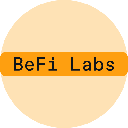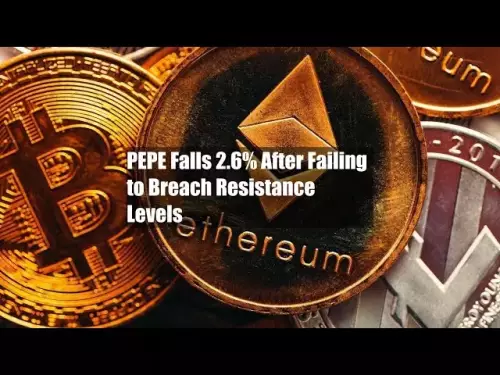-
 bitcoin
bitcoin $124586.364639 USD
0.62% -
 ethereum
ethereum $4670.671710 USD
3.33% -
 xrp
xrp $2.983701 USD
0.18% -
 tether
tether $1.000175 USD
-0.03% -
 bnb
bnb $1209.430642 USD
2.76% -
 solana
solana $231.365861 USD
0.51% -
 usd-coin
usd-coin $0.999665 USD
-0.02% -
 dogecoin
dogecoin $0.264657 USD
4.46% -
 tron
tron $0.346415 USD
1.60% -
 cardano
cardano $0.871586 USD
3.70% -
 chainlink
chainlink $23.451270 USD
7.56% -
 hyperliquid
hyperliquid $46.860071 USD
-2.96% -
 ethena-usde
ethena-usde $1.000120 USD
0.04% -
 sui
sui $3.611279 USD
1.08% -
 stellar
stellar $0.407149 USD
0.96%
How to estimate gas fees correctly in MetaMask?
Gas fees in MetaMask depend on network congestion and transaction complexity, with adjustable settings to optimize cost and speed.
Oct 07, 2025 at 06:01 pm

Understanding Gas Fees in MetaMask
1. Gas fees in MetaMask are determined by the Ethereum network’s current congestion and the complexity of the transaction. Each action on the blockchain, such as sending tokens or interacting with a smart contract, requires computational effort, measured in gas units. The total cost is calculated by multiplying the gas price (in Gwei) by the gas limit.
2. MetaMask automatically suggests gas prices based on recent network activity. These suggestions come in three tiers: slow, average, and fast. The slow option usually results in delayed confirmation but lower costs, while the fast option prioritizes immediate processing at a higher fee.
3. Users can manually adjust both the gas price and gas limit in the transaction settings. This customization allows experienced users to optimize fees depending on urgency. However, setting values too low may result in transactions remaining unconfirmed for hours or even failing.
4. During periods of high network demand—such as during NFT mints or major DeFi launches—gas prices spike significantly. Monitoring real-time gas trackers like Etherscan’s Gas Tracker or GasNow helps anticipate these fluctuations and choose optimal times to transact.
5. Always double-check the total ETH cost displayed before confirming any transaction. A small error in gas settings can lead to unexpectedly high expenses.
How Network Congestion Impacts Estimation Accuracy
1. The Ethereum blockchain processes a limited number of transactions per block. When demand exceeds capacity, users must bid higher gas prices to have their transactions included sooner. This auction-like system causes gas fees to fluctuate rapidly.
2. Events such as token launches, yield farming opportunities, or market-moving news often trigger sudden spikes in network usage. In these moments, MetaMask’s default estimates might become outdated within minutes.
3. Transactions that involve complex smart contract interactions—like providing liquidity or swapping tokens across multiple pools—require more gas than simple transfers. Misjudging this complexity leads to underestimation and potential failure.
4. If a transaction fails due to insufficient gas, the network still charges for the computation used. This means lost funds without achieving the intended outcome, making accurate estimation crucial.
5. Using tools like Blocknative or TxPrice provides live data on pending transactions and recommended gas rates, improving estimation precision during volatile conditions.
Strategies for Optimizing Gas Fee Estimates
1. Schedule non-urgent transactions during off-peak hours, typically late at night UTC or early weekends when trading volume drops. Lower demand translates into reduced competition for block space.
2. Enable advanced gas controls in MetaMask to view and edit the base fee and priority fee separately. Understanding how these components contribute to the total cost enables finer control over spending.
3. For routine operations like ERC-20 approvals, consider using batch tools or wallets that support meta-transactions to minimize repeated interactions and cumulative fees.
4. Some decentralized applications offer Layer 2 solutions or alternative networks like Polygon, where gas fees are negligible compared to Ethereum mainnet. Switching networks through MetaMask can drastically reduce costs.
5. Regularly review confirmed transaction histories in your wallet to identify patterns in successful confirmations versus failed attempts, refining future estimates.
Frequently Asked Questions
What happens if I set the gas price too low?Setting a low gas price means miners may ignore your transaction. It could remain pending indefinitely or eventually drop from the mempool without execution, though the gas already spent won’t be refunded.
Can I speed up a stuck transaction in MetaMask?Yes. Open the transaction queue in MetaMask and use the “Speed Up” feature. This resubmits the same transaction with a higher gas fee, replacing the original one on the network.
Why does MetaMask sometimes show different gas estimates for similar transactions?Differences arise from variations in contract interaction complexity, network load at the time, and changes in base fees between blocks. Even minor differences in data input can affect required computation.
Is it safe to manually increase the gas limit beyond MetaMask’s suggestion?Increasing the gas limit slightly can prevent out-of-gas errors, but setting it excessively high wastes money. Unused gas is refunded, but miscalculations can still result in unnecessary expenditure.
Disclaimer:info@kdj.com
The information provided is not trading advice. kdj.com does not assume any responsibility for any investments made based on the information provided in this article. Cryptocurrencies are highly volatile and it is highly recommended that you invest with caution after thorough research!
If you believe that the content used on this website infringes your copyright, please contact us immediately (info@kdj.com) and we will delete it promptly.
- BlockDAG, DOGE, HYPE Sponsorship: Crypto Trends Shaping 2025
- 2025-10-01 00:25:13
- Deutsche Börse and Circle: A StableCoin Adoption Powerhouse in Europe
- 2025-10-01 00:25:13
- BlockDAG's Presale Buzz: Is It the Crypto to Watch in October 2025?
- 2025-10-01 00:30:13
- Bitcoin, Crypto, and IQ: When Genius Meets Digital Gold?
- 2025-10-01 00:30:13
- Stablecoins, American Innovation, and Wallet Tokens: The Next Frontier
- 2025-10-01 00:35:12
- NBU, Coins, and Crypto in Ukraine: A New Yorker's Take
- 2025-10-01 00:45:14
Related knowledge
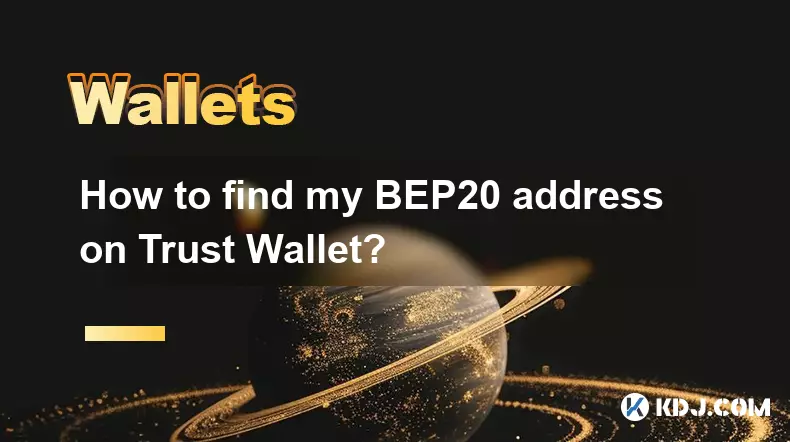
How to find my BEP20 address on Trust Wallet?
Oct 04,2025 at 06:19pm
Understanding BEP20 and Trust Wallet Compatibility1. Trust Wallet is a widely used cryptocurrency wallet that supports multiple blockchain networks, i...
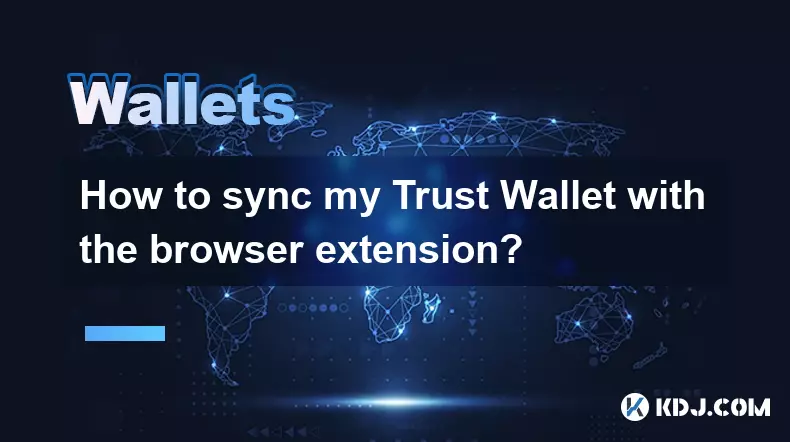
How to sync my Trust Wallet with the browser extension?
Oct 03,2025 at 06:19pm
Understanding Trust Wallet and Browser Extension IntegrationTrust Wallet is a popular non-custodial cryptocurrency wallet that supports a wide range o...
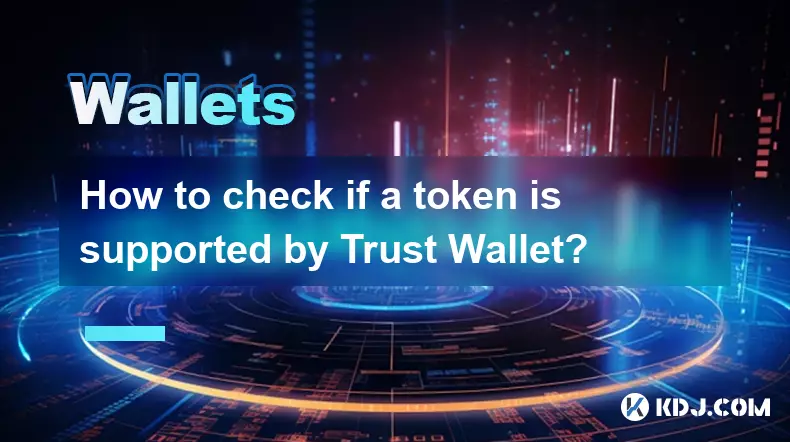
How to check if a token is supported by Trust Wallet?
Oct 04,2025 at 05:18am
Understanding Token Compatibility with Trust Wallet1. Trust Wallet supports a wide range of blockchain networks, including Ethereum, Binance Smart Cha...

How to get the Trust Wallet browser extension?
Oct 01,2025 at 12:37am
How to Access the Trust Wallet Browser Extension1. Visit the official Trust Wallet website through a secure internet connection. Navigate to the downl...
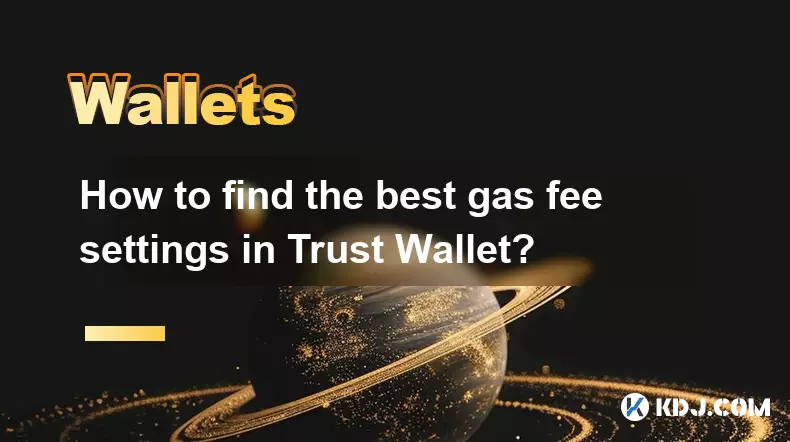
How to find the best gas fee settings in Trust Wallet?
Oct 08,2025 at 02:19am
Understanding Gas Fees in Trust Wallet1. Gas fees are transaction costs paid to miners or validators on blockchain networks like Ethereum and Binance ...

How to interact with a DApp using Trust Wallet?
Oct 02,2025 at 10:00pm
Connecting Trust Wallet to a DApp1. Open the Trust Wallet app on your mobile device and ensure your wallet is unlocked with access to your assets. Nav...

How to find my BEP20 address on Trust Wallet?
Oct 04,2025 at 06:19pm
Understanding BEP20 and Trust Wallet Compatibility1. Trust Wallet is a widely used cryptocurrency wallet that supports multiple blockchain networks, i...

How to sync my Trust Wallet with the browser extension?
Oct 03,2025 at 06:19pm
Understanding Trust Wallet and Browser Extension IntegrationTrust Wallet is a popular non-custodial cryptocurrency wallet that supports a wide range o...

How to check if a token is supported by Trust Wallet?
Oct 04,2025 at 05:18am
Understanding Token Compatibility with Trust Wallet1. Trust Wallet supports a wide range of blockchain networks, including Ethereum, Binance Smart Cha...

How to get the Trust Wallet browser extension?
Oct 01,2025 at 12:37am
How to Access the Trust Wallet Browser Extension1. Visit the official Trust Wallet website through a secure internet connection. Navigate to the downl...

How to find the best gas fee settings in Trust Wallet?
Oct 08,2025 at 02:19am
Understanding Gas Fees in Trust Wallet1. Gas fees are transaction costs paid to miners or validators on blockchain networks like Ethereum and Binance ...

How to interact with a DApp using Trust Wallet?
Oct 02,2025 at 10:00pm
Connecting Trust Wallet to a DApp1. Open the Trust Wallet app on your mobile device and ensure your wallet is unlocked with access to your assets. Nav...
See all articles

















